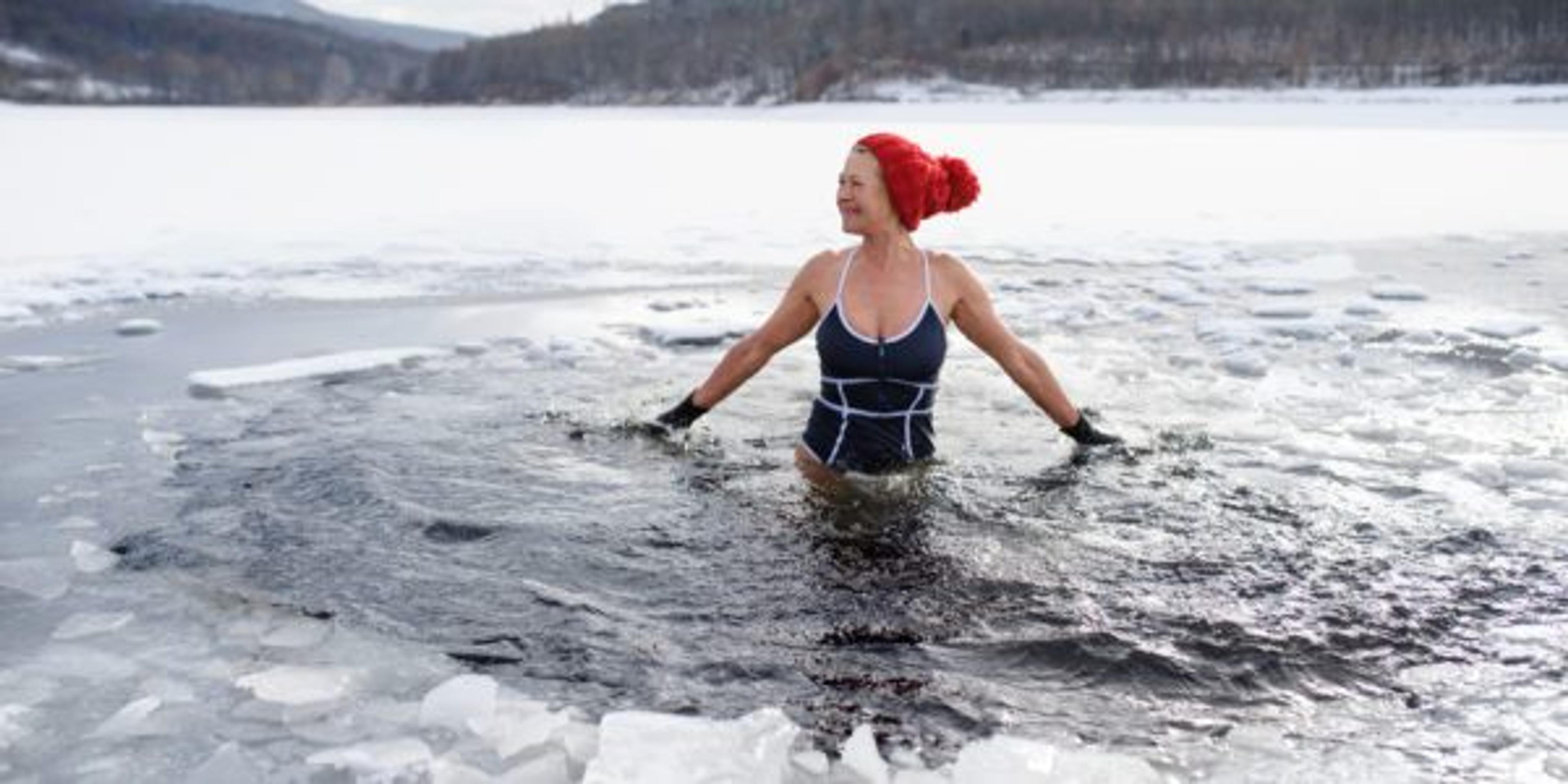Cold Water Therapy and Cold Water Immersion: Do They Work?

Jake Newby
| 3 min read

Have you ever seen a video clip of a professional athlete sliding ever so carefully into a big metal tub of ice water? If you have, you probably gathered that it was a recovery method.
Cold water therapy – also known as cold hydrotherapy and cold-water immersion – is the practice of immersing one’s body in water colder than 60 degrees Fahrenheit. The goal is to utilize water’s properties in treating injuries and chronic conditions.
In some circles this therapy method is thought to reduce swelling and inflammation, which is why athletes take to it. Some lean on cold water therapy to treat conditions like acne, arthritis, anxiety and depression, headaches, joint, muscle, and nerve issues, and more.
But is it truly effective? That answer is still a bit murky.
Types of cold water therapy
Common types of cold-water therapy include:
- Cold showers
- Cold water immersion
- Ice baths
- Outdoor cold-water plunges
Cryotherapy is a close cousin of cold water therapy. It involves exposing oneself to extreme cold for short bursts of time to recover from intense exercise.
Those who use cold water therapy should never sit in the ice-cold water for too long. If the water is between 55 and 59 degrees, it is generally advised to spend no more than 10 to 15 minutes immersed up to the waist. If it is even colder, like 40-50 degrees, stay in the water for no longer than three minutes.
Are there benefits to cold water therapy?
Multiple studies have pointed to cold water immersion as a quick and effective way to treat exercise-induced hyperthermia, or overheating.
Some research has linked cold water therapy to a general reduction in pain. Exposure to cold water can cause blood vessels to constrict, which can reduce swelling and edema that causes pain. Think of it as a more full-bodied version of applying an ice pack to an injured part of the body to limit swelling.
However, multiple studies, like one conducted by the Journal of Physiology in 2017, suggest that cold water immersion is “no more effective than active recovery for minimizing the inflammatory and stress responses in muscle after resistance exercise.” Active recovery is low-intensity exercise that follows intense exercise, like when you walk, stretch, or do yoga after an hour of weight training.
Another study, by Frontiers in Sports and Active Living in 2020, concluded that cold water immersion provided “little benefit to recovery” within a one-week span of testing. The study did point out a trend toward a benefit when implementing cold water immersion in well-trained volleyball athletes over 16 days.
Much like the arguable physical benefits associated with cold water therapy, its alleged mental health benefits need to be researched more thoroughly before being widely promoted by the medical community. Some small case studies have indicated a decrease in depressive and anxiety-related symptoms among people who try cold water therapy.
Can cold water therapy be harmful?
Because cold water therapy and immersion affects the heart, blood vessels and respiratory system, this treatment method can lead to hypothermia or serious cardiac stress in some instances.
Immersing yourself in ice-cold water rapidly reduces skin temperature, which can trigger a strong “fight or flight” type of nervous system reaction in some people. The cold restricts blood vessels, which can spike blood pressure and impact heart rate.
For these reasons and more, you should talk to your doctor before considering cold water therapy.
Continue reading:
Photo credit: Getty Images





